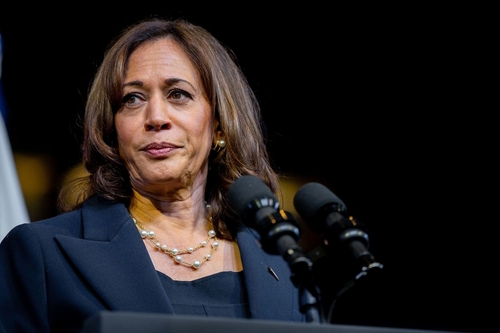As the 2024 presidential election looms, Vice President Kamala Harris' campaign in Pennsylvania is facing significant internal chaos, threatening her chances in this critical swing state. Despite having invested heavily in the state with massive ad spending and the largest ground operation of any campaign, concerns about poor management and inadequate voter outreach have left local Democratic leaders worried about her ability to secure a victory against Donald Trump.
One of the central issues plaguing the Harris campaign is dissatisfaction with Pennsylvania state campaign manager Nikki Lu. Local leaders, particularly in Philadelphia, accuse her of failing to understand the political dynamics of the state, especially in minority communities. Ryan Boyer, head of the Philadelphia Building and Construction Trades Council, voiced his frustrations, stating that Lu’s strategy is failing to engage key voting blocs, including young African American men and disaffected voters. "I don't think she understands Philadelphia," Boyer remarked, echoing a sentiment shared by many local Democratic leaders.
Kamala rally. pic.twitter.com/GYCNM2Qu2O
— Judith janacek kupferschmidt (@judikooper) October 17, 2024
The friction within the campaign appears to be driven by more than just strategic disagreements. There is a deep-seated tension between leaders from Philadelphia and those from Pittsburgh, where Lu hails from. The rivalry between the two cities has led to criticism that the campaign is neglecting Philadelphia, the state's largest urban center and home to crucial Black and Latino voters. Former Philadelphia City Councilwoman Maria Quinones-Sanchez criticized the campaign's overly data-driven approach, arguing it lacked the cultural sensitivity and personal touch necessary to mobilize Latino voters.
Closed-door meetings with Black and Latino leaders in the state have reportedly failed to resolve these issues, with many attendees leaving unconvinced by the campaign's strategy. The Harris team’s reliance on technical tactics like door-knocking, instead of more personal outreach, has been seen as insufficient to generate the enthusiasm needed to win over minority communities. Despite these criticisms, Harris’ national campaign manager, Julie Chavez Rodriguez, defended their efforts, touting the campaign's extensive network of 50 offices and 400 staff across Pennsylvania.
OMG 🚨 Kamala Harris has been caught bussing in THOUSANDS of “Supporters” to her NH rally
I CAN’T STOP LAUGHING, SHE IS SO FAKE
KEEP EXPOSING THIS PHONY https://t.co/HUcWubWs08
— MAGA Voice (@MAGAVoice) September 4, 2024
However, some local Democratic leaders fear that these efforts may be too little, too late. The stakes in Pennsylvania are high, and any missteps could tip the scales in favor of Trump. Democratic Senator John Fetterman expressed his alarm, noting that Trump continues to hold a “special kind of hold” on the state, particularly among blue-collar and rural voters. Trump's strong connection with Pennsylvania's Catholic voters, a key demographic that supported Biden in 2020, presents another challenge for Harris, as these voters have shown less enthusiasm for her candidacy.
To make matters worse, Harris’ campaign is facing criticisms for underutilizing high-profile surrogates. Philadelphia Mayor Cherelle Parker, a tough-on-crime Democrat with significant influence in both Black and working-class white communities, has not been fully deployed in the campaign, according to some party insiders. These missed opportunities have raised further concerns about the campaign’s effectiveness.
Despite these internal challenges, the Harris campaign remains confident in its strategy. Rodriguez pointed to the significant financial and logistical investments the campaign has made in Pennsylvania, declaring that no stone is being left unturned. Yet, as Election Day approaches, the internal turmoil within the campaign has left many Pennsylvania Democrats questioning whether Harris can successfully navigate the political complexities of the state and secure the votes she needs.
As Harris and Trump continue their battle for Pennsylvania, both campaigns are pouring unprecedented amounts of money into advertising and grassroots efforts, with over $500 million already spent in the state. The outcome of this battleground could ultimately determine the result of the entire election.

